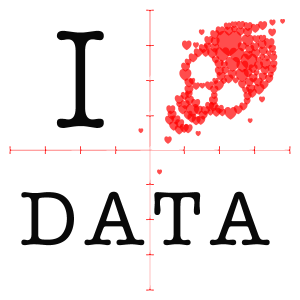This is a guest blog post by Alix Dunn & Tin Geber from the The Engine Room , Lindsay Beck of the National Democratic Institute and Mushon Zer-Aviv from The Public Knowledge Workshop
As we head to Berlin from all around the world with bright eyes and a thirst for (open) knowledge, hoping to learn, meet and share with like-minded individuals at the OKFest, we want to take the opportunity to ask: Does “open” always lead to good? Can the rush to release data publicly work against the public interest?
There is a clear increase in the use of open data to tackle development challenges and to politically align with the spirit of transparency. The number of countries joining the Open Government Partnership continues to grow, the new Post-2015 Development Goals call for a “data revolution”, innovative development funding structures like Making All Voices Count show a clear shift towards the greater transparency and accountability through ICT and open processes.
In short, “open” is the buzzword du jour. As with all buzzwords and buzz concepts, noncritical adoption of tactics can result in unintended consequences. The Open Knowledge Festival is designed to highlight the shining opportunities that open data and openness present for changing the world for the better. We’ve been ambassadors for the value of openness, arguing for its benefits for governments, commerce, science and culture. But rarely do we get the chance for a healthy dose of good old skepticism.
In an effort to share experiences, concerns, and concrete harm stories about the way open can come back to bite the best-intentioned, we decided to organize the OKFest 2014 panel “Can Open Data Go Wrong?”. In this session we will have an open, critical discussion around examples of open data used in unintended and harmful ways. Some examples we will be discussing include:
-
Open Budget. Governments are trying to be more open about their spending. Publishing budgets online is a clear way of increasing transparency and accountability in the process. But what if that process fails to capture real-time adjustments and modifications that sometimes subvert entire budget lines?
-
Land Data. Land deals are notoriously complicated and difficult to define. There are enormous commercial pressures on land, and transactions are sometimes kept purposefully obscure to influence market prices. What happens when an organization decides to map large-scale land acquisitions without considering all the implications of publishing such an inherently complex dataset?
-
FOIA compliance. The speed and flexibility of a government to act upon Freedom of Information Act requests can be an important indicator of that government's commitment to transparency, and of a healthy communication between government and civil society. However, due to the complexity of presenting FOIA compliance, visualizing FOIA information can present an incomplete picture and potentially misleading figures.
-
Health data. Aggregates of health data from national health services can be opened up for statistical analysis, and might provide a useful tool for research. But what happens if anonymization fails, or if personally identifiable information can still be inferred through corollary data, like geolocation? How to gauge the right balance between public service and personal privacy?
We want you
We will do our best to recruit other participants at the OKFest to present illustrative real world examples. We also know there is much more out there that's not on our radar — perhaps because no one has ever talked about it. If YOU have an open data horror story or want to discuss a different angle of open data gone wrong, get in touch: send us an email, contact us on twitter @engnroom or use the hashtag #OKOHNO!
